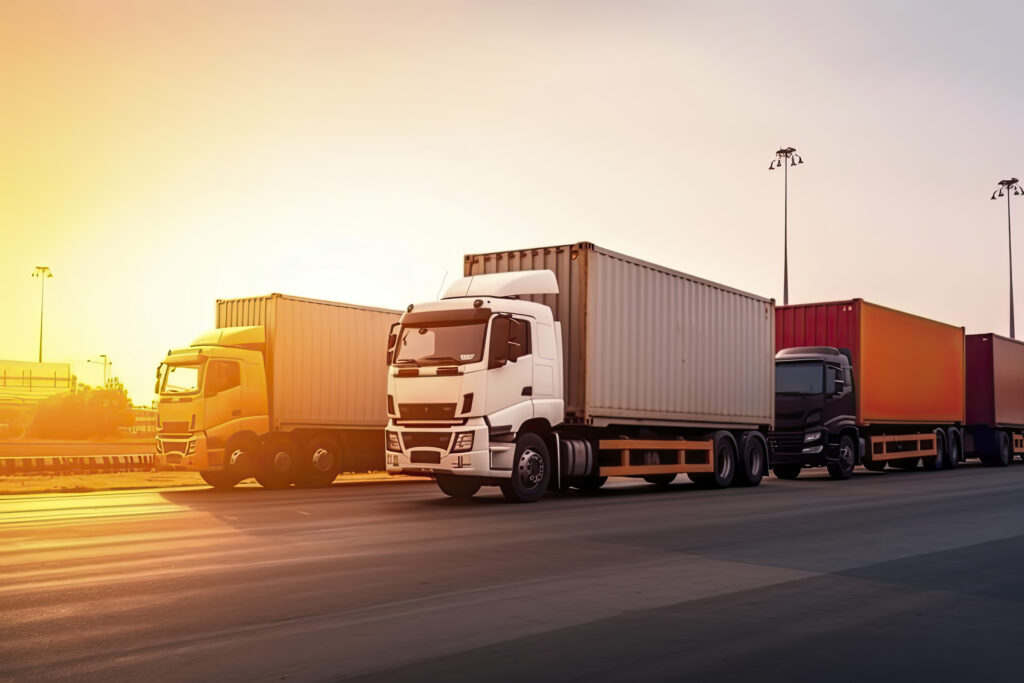What Impact Will Autonomous Vehicles Have On Freight Transportation?
Discover the game-changing potential of autonomous vehicles in revolutionising freight transportation.
As the United Kingdom embraces the technological revolution, the advent of autonomous vehicles (AVs) is poised to profoundly impact the freight transportation sector. This innovative technology promises to transform the way goods are moved across the country, ushering in a new era of efficiency, safety, and sustainability. The adoption of AVs in the logistics and freight market will undoubtedly bring about sweeping changes, necessitating strategic adjustments and adaptations from industry stakeholders.

Operational Efficiencies and Cost Savings
One of the most significant advantages of autonomous vehicles in freight transportation is the potential for increased operational efficiencies and cost savings. AVs are designed to operate with precision, minimising the risk of human error and reducing the likelihood of accidents and delays. This seamless operation can translate into optimised delivery schedules, faster turnaround times, and improved asset utilisation, resulting in substantial cost savings for logistic companies.
Furthermore, AVs have the potential to streamline supply chain processes by enabling seamless communication and data exchange between vehicles, warehouses, and distribution centres. This interconnectivity can facilitate real-time tracking, predictive maintenance, and dynamic routing, further enhancing operational efficiencies and reducing downtime.
Addressing the Driver Shortage
The UK logistics and freight industry has long grappled with a persistent driver shortage, which has been exacerbated by factors such as an ageing workforce and stringent regulations. The introduction of autonomous vehicles could provide a viable solution to this challenge, alleviating the reliance on human drivers and ensuring a consistent flow of goods across the country.
By utilising AVs, logistics companies can effectively mitigate the impact of driver shortages, maintain consistent service levels, and reduce the strain on existing human resources. This technology could also open up new opportunities for individuals who were previously unable to pursue careers in freight transportation due to physical limitations or other constraints.
Enhanced Safety and Reduced Accidents
Safety is a paramount concern in the logistics and freight industry, and the implementation of autonomous vehicles promises to significantly improve safety standards. AVs are equipped with advanced sensors, cameras, and communication systems that enable them to detect and respond to potential hazards more effectively than human drivers.
By eliminating human error, a leading cause of accidents, AVs have the potential to substantially reduce the number of accidents and fatalities on UK roads. This not only safeguards the lives of transportation professionals but also minimises the risk of damage to valuable cargo and ensures timely deliveries.
Environmental Sustainability
As the UK strives to meet its environmental targets and reduce its carbon footprint, the adoption of autonomous vehicles in freight transportation could play a pivotal role. AVs are designed to optimise fuel efficiency through precise acceleration, braking, and route planning, resulting in lower emissions and reduced energy consumption.
Additionally, the integration of electric and hybrid powertrains into autonomous vehicle fleets could further contribute to the decarbonisation of the logistics sector. By embracing these eco-friendly technologies, the UK can position itself as a leader in sustainable freight transportation, aligning with its commitment to combating climate change and promoting a greener future.
Regulatory Challenges and Public Acceptance
Despite the numerous advantages of autonomous vehicles in freight transportation, their widespread adoption is not without challenges. Regulatory frameworks must be established to govern the safe and responsible deployment of AVs on UK roads. Policymakers and industry stakeholders will need to collaborate closely to address issues related to liability, cybersecurity, data privacy, and infrastructure readiness.
Moreover, gaining public acceptance and trust in this disruptive technology will be crucial for its successful implementation. Addressing concerns related to job displacement, safety, and privacy will be essential to fostering a positive perception and facilitating the seamless integration of AVs into the freight transportation ecosystem.
Infrastructure and Technological Readiness
The successful adoption of autonomous vehicles in freight transportation will heavily rely on the readiness of the existing infrastructure and technological capabilities. Significant investments may be required to upgrade road networks, communication systems, and support infrastructure to accommodate the unique requirements of AVs.
Furthermore, the development and integration of advanced technologies such as vehicle-to-vehicle (V2V) and vehicle-to-infrastructure (V2I) communication, cybersecurity measures, and real-time data analytics will be crucial for enabling the safe and efficient operation of autonomous freight vehicles.
Workforce Reskilling and Adaptation
While autonomous vehicles may alleviate the driver shortage in the logistics sector, their introduction will inevitably necessitate workforce reskilling and adaptation. As the roles and responsibilities of transportation professionals evolve, comprehensive training programs will be essential to equip existing workers with the necessary skills to operate, maintain, and manage autonomous fleets.
Furthermore, educational institutions and industry stakeholders may need to collaborate to develop specialised curricula and training programs to cultivate a future workforce equipped to navigate the autonomous freight transportation landscape.
Conclusion – Autonomous Vehicles Impact On Freight Transportation
The imminent arrival of autonomous vehicles in the UK freight transportation sector promises to revolutionise the way goods are moved across the country. While the potential benefits, such as increased operational efficiencies, cost savings, improved safety, and environmental sustainability, are substantial, the successful integration of this disruptive technology will require carefully navigating regulatory challenges, fostering public acceptance, and ensuring infrastructure and technological readiness.
As the UK logistics and freight market embraces this transformative shift, industry stakeholders must proactively adapt their strategies, invest in workforce reskilling, and collaborate with policymakers to create a conducive environment for the seamless adoption of autonomous vehicles. By doing so, the UK can position itself as a leader in sustainable and efficient freight transportation, paving the way for a future where goods are transported with unparalleled precision, reliability, and environmental responsibility.
Contact Us
We are here when you need us. Get in contact to see what we can do for you
Contact Us